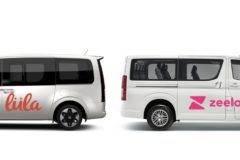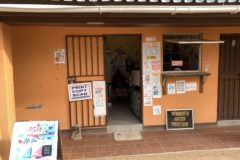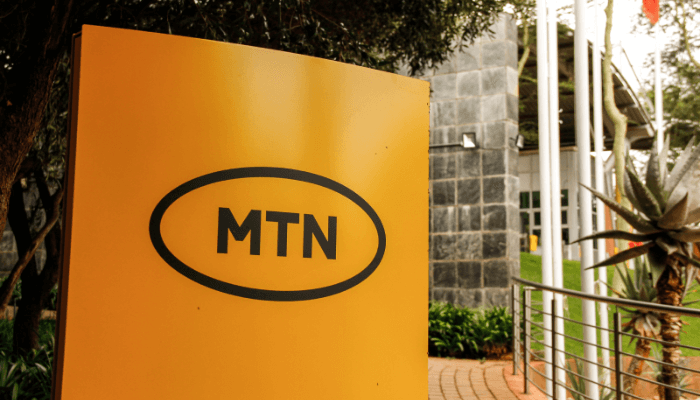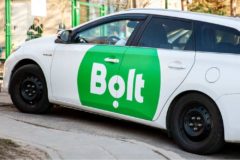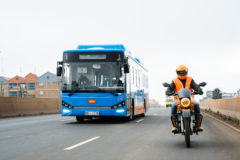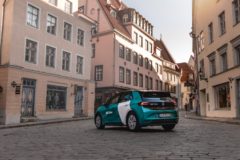According to Mordor Intelligence’s Car Rental Market – Growth, Trends, COVID-19 Impact, and Forecasts (2022 – 2027) report, the global car rental market was worth $119.28 billion in 2021 and is expected to reach $223.07 billion by 2027 with a cumulative annual growth rate (CAGR) of more than 11% during the forecast period (2022 – 2027).
Although the report goes on to further classify Africa, together with South America and the Middle East, as a “low-growth” region in the sector, the South African startup Planet42 is betting on the positive growth of the industry in Africa over the next few years.
Planet42 is a vehicle rental company offering rent-to-buy car service for private clients. According to Managing Director Grant Wing, the startup, which raised $30 million in December last year, has scaled its fleet 10x in the last 30 months, perhaps signalling the demand trajectory of the car rental industry in South Africa.
In this interview, Wing, who is a chartered accountant by profession and has worked as a financial manager for a Johannesburg Stock Exchange-listed entity, talks about what sets Planet42 apart from the intense car rental competition in South Africa. He also discusses what challenges the startup has had in scaling up, where he foresees South Africa’s mobility sector and Planet42’s ambitious expansion plans into Latin America and Southeast Asia.
Tell us a bit more about Planet42 and the problem you are solving with your product offering.
In South Africa, there are the big five banks and they are all very risk averse when it comes to assisting customers. For example, a customer can have a slight blemish on their credit report from missing a home loan instalment during COVID and that can put them on the blacklist for 30 years. This is actually unfair to the customers as they’re being completely financially excluded.
As you know, in South Africa, public transport is inefficient and, sometimes, unreliable. If you don’t have a car in South Africa, you basically can’t get access to opportunities. Many people live on the peripheries of the major cities and need to travel inwards to find or get to work. These journeys are easily 20 to 50 kilometres at a time. Now, if you’re using ride-hailing, that’s gonna cost you R10 per kilometre one way. So for a 100-kilometre round trip, it’s just unaffordable to spend R1000 per day on transport.
Such people are customers who deserve better. If they were customers of banks in Europe or the USA, where they have more progressive credit scoring methodologies, banks would give these customers financing for a car.
So in essence, it’s the financial system that unfairly blacklists and excludes these customers. How can you have a country where two-thirds of the population is considered blacklisted? Ultimately the system itself is questionable. So we are filling that gap by helping the deserving financially-excluded people by way of giving them access to mobility. And in South Africa, mobility equals tremendous opportunity.
What role do you think automobility can play in fostering social inclusion in South Africa?
Well, there are two parts to this question. The core part is that I need to work from the office, so I need a car. I can’t afford to take a rental contract because there are punitive restrictions on mileage. And I can’t afford to Uber everywhere.
So we’re providing the customer with that opportunity to access their own personal transport. I personally went on a trip the other day from Centurion to Hillbrow because we had a company event there. So I caught a taxi just to get a feel of the customer journey for those guys who don’t have cars. So I know there’s a bad lot of bad stigma about taxis, but the taxi drive itself wasn’t actually too bad. It’s what can happen to you when you walk to the taxi that’s the issue. You could get mugged.
Also, you don’t have the flexibility of hours because taxis operate certain routes only at certain hours. Then when you get to your destination you need to walk another kilometre or two and at that point, anything can happen.
So now, what are my options? Virtually non-existent. You can’t get finance from a bank, you can’t afford to Uber, and you can’t afford to take a rental contract from a traditional Hertz/Avis.
There is also the play aspect. You want to take your family to Durban because you’ve worked really hard during the year. Now, most companies have mileage restrictions of like 150 kilometres a day and that does not work for most people. So your work-life balance gets skewed. So we’re looking to give people absolute freedom to work, play and really live their lives as they should.
Planet42 uses a proprietary scoring algorithm to automatically assess the risk of individual customers. Recently, algorithms bias has been shown to disadvantage certain demographics. How is Planet42 ensuring this bias does not happen?
So at Planet42, we only care if the customer is a good risk. Risk is determined by assessing whether the customer can afford to meet the contract commitments. We don’t care if the customer is male or female, black, white, Indian, or coloured.
Our algorithm determines the ability to pay by previous actions that the individual has taken, how they manage their affairs and what their income is. Those are the only things that we look at.
The challenges of South Africa’s urban transportation system have a major impact on the economic trajectory of the country. As Planet42, how are you thinking outside the box to address these challenges?
As I mentioned before, two-thirds of the population in the country is blacklisted, and all of them are actually well deserving of mobility financing. By giving those people the opportunity to get into a car, we’re enabling economic growth by enabling people to get to their jobs. I mean, unlike New York, where you can just hop on a train and pretty much do anything you want to, in South Africa, you have to drive to your job. So basically, your life is pretty miserable without a car in South Africa.
We are looking to just give people access to opportunities, both in work and leisure. And there is a tremendous market for this in South Africa. We would like to capture about 1% of the used car market annually, which will take us to about 200,000 cars in total fleet size.
Last year, Planet42 raised $30 million in funding. What impact has the financing had in helping the company scale its operations and improve its product offering?
Every single penny that we raise goes into buying new cars for deserving clients. We don’t raise funds to pay salaries or to cover overheads or cover rent. Planet 42 is operationally cash-flow-stable so every single dollar of funding that comes in is dedicated 100% to solving the transport inequality problems through buying new and secondhand cars for customers.
The competition in the South African automobility industry is quite stiff. What sets Planet42 apart from the competition?
So the core concept of rent-to-own is quite common and many companies here offer that. But none of them are doing it as a data-first approach. So every time we give out a contract and then that customer ends up defaulting on the contract, it’s an opportunity to train our algorithm to make better and better decisions going forward.
It is through constant failure that progressive improvement is made in our algorithm. This enables us to select the right customers as we go forward. Most other companies will just say “Oh, okay the customer defaulted so let’s just mitigate our risk by increasing the rental amount or increasing the deposit.” But that doesn’t work.
I mean we have had some companies that have outrightly copied our model, advertised pretty close to our pricing and even signed up our exact list of dealers. And they’re not doing so great because they don’t use a data-first approach.
What challenges have you had to overcome in your operations in the South African market?
One of the challenges is in scaling rapidly. In 30 months, Planet42 has scaled its fleet 10x. We went from 1000 cars in 2019 to just over 10 or 11,000 cars right now. So just achieving that massive scale, hiring the right people, keeping procedures and being consistent all at the same time has been quite a challenge. Also, a third of our staff are always in training. So there’s continual development which is needed to keep the team aligned.
In short, I would say that getting the right people, keeping them happy and aligned has been the biggest challenge, but a tremendously rewarding one when we get it right.
What do you think is the future of automobility and car subscription services in South Africa?
If you look to the UK and the USA and focus on cost subscription as a business like the Cazoo model, you will realize that everything is moving to shorter duration contracts. I mean, it is happening in South Africa already where you have the likes of BMW offering what they call agility finance which caters for shorter and shorter contracts.
Everything is moving to shorter and shorter durations because life is uncertain. The future is uncertain. If I ask you, “where do you see yourself in five years’ time?”, you most probably don’t have a clear idea. I have no idea personally. So why would you take out a finance lease that you need to commit to for five years?
We apply that mindset to a Planet42 contract where we want the customer to just make a minimum of 6-months payment. If they wish to return the car before the period is up, they incur just a one-month cancellation fee and then they can move on with their lives. Binding people to longer contracts as is currently the case is definitely going to become a thing of the past.
Lastly, are there any product features launching soon on Planet42 that you would like to give our readers a sneak peek into?
I can tell you that the main thing that’s happening is, because we are getting better and better at scoring our customers, and we’re able to pass cost savings on to our customers.
Also, in the past two years, our pricing has been cut in half and we’re actively looking at reducing the costs even further for our customers. I can’t give you the exact number but we will be getting even cheaper in pricing in the coming months.
We have also started to expand into Mexico where we currently have about 70 cars. The Latin American market is quite large, as well as the south-east Asia market. The problem of deserving people being excluded from traditional finance is a global phenomenon, so Planet42 has global ambitions to tackle this problem around the world.
Editor’s Note: This interview has been edited for length and clarity.










